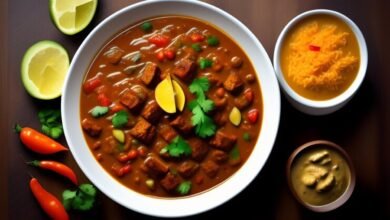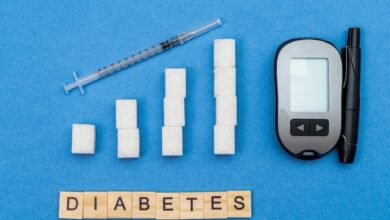11 Best and Worst Diets for Diabetes


Diabetes is a chronic condition that affects millions of people worldwide. While there is no cure for diabetes, a healthy diet can help manage the condition and prevent complications. In this article, we’ll take a look at the 11 best and worst diets for diabetes.
Introduction
Diabetes is a metabolic disorder that occurs when the body cannot produce or properly use insulin, a hormone that regulates blood sugar levels. The two main types of diabetes are type 1, which is usually diagnosed in childhood, and type 2, which is more common in adults and is often linked to obesity.
While there is no cure for diabetes, lifestyle changes can help manage the condition and prevent complications such as heart disease, kidney damage, and nerve damage. One of the most important lifestyle changes for people with diabetes is to follow a healthy diet that promotes stable blood sugar levels.
Read More: AI to Smart Pens: Advancements in Diabetes Care Technology
What is Diabetes?

Diabetes is a chronic condition in which the body cannot produce or properly use insulin, a hormone that regulates blood sugar levels. There are two main types of diabetes:
- Type 1 diabetes: This type of diabetes usually develops in childhood and is caused by the immune system attacking the cells in the pancreas that produce insulin. People with type 1 diabetes need to take insulin injections or use an insulin pump to manage their blood sugar levels.
- Type 2 diabetes: This type of diabetes is more common in adults and is often linked to obesity and a sedentary lifestyle. In type 2 diabetes, the body becomes resistant to insulin or doesn’t produce enough insulin to regulate blood sugar levels. Lifestyle changes such as diet and exercise can help manage type 2 diabetes, and some people may also need to take medication or insulin.
How Diet Affects Diabetes
A healthy diet can help people with diabetes manage their blood sugar levels and prevent complications. A healthy diet for diabetes typically includes:
- Foods that are high in fiber, such as fruits, vegetables, whole grains, and legumes
- Foods that are low in saturated and trans fats, such as lean protein, nuts, and seeds
- Foods that are low in sugar and refined carbohydrates, such as soda, candy, and white bread
On the other hand, a diet that is high in sugar, refined carbohydrates, and saturated and trans fats can worsen diabetes and increase the risk of complications such as heart disease and nerve damage.
The 11 Best Diets for Diabetes
Mediterranean Diet: The Mediterranean diet is a healthy eating plan that is often recommended for people with diabetes. It is rich in fruits, vegetables, whole grains, legumes, nuts, seeds, and healthy fats, such as olive oil and fatty fish.
DASH Diet: The DASH (Dietary Approaches to Stop Hypertension) diet is designed to lower blood pressure, but it is also beneficial for people with diabetes. The DASH diet emphasizes fruits, vegetables, whole grains, lean protein, and low-fat dairy products.
Vegan Diet: A vegan diet, which excludes all animal products, has been shown to improve blood sugar control and reduce the risk of complications in people with type 2 diabetes. Vegan diets are typically high in fiber, low in saturated fat, and rich in nutrients.
Low-Carb Diet: A low-carb diet may help people with type 2 diabetes lower their blood sugar levels and lose weight. Low-carb diets typically restrict carbohydrates and focus on protein, healthy fats, and non-starchy vegetables.
Paleo Diet: The Paleo diet is based on the types of foods that were eaten by early humans, such as meat, fish, fruits, and vegetables. While some research has suggested that the Paleo diet may be beneficial for people with type 2 diabetes, more studies are needed to confirm its effectiveness.
Vegetarian Diet: A vegetarian diet, which excludes meat but includes dairy and eggs, can be beneficial for people with diabetes. Vegetarian diets are typically high in fiber and low in saturated fat.
Low-Glycemic Index Diet: A low-glycemic index diet is designed to prevent spikes in blood sugar levels by focusing on foods that have a lower glycemic index, such as whole grains, fruits, and vegetables.
Flexitarian Diet: The flexitarian diet is a semi-vegetarian diet that emphasizes plant-based foods but allows for the occasional consumption of meat and animal products. The flexitarian diet is rich in fiber, vitamins, and minerals.
Weight Watchers: Weight Watchers is a popular weight loss program that can also be beneficial for people with diabetes. The program emphasizes healthy eating habits, such as portion control and choosing foods that are low in saturated and trans fats.
Ornish Diet: The Ornish diet is a low-fat, vegetarian diet that has been shown to improve blood sugar control and reduce the risk of complications in people with type 2 diabetes.
TLC Diet: The TLC (Therapeutic Lifestyle Changes) diet is designed to reduce cholesterol levels, but it is also beneficial for people with diabetes. The TLC diet emphasizes fruits, vegetables, whole grains, lean protein, and low-fat dairy products.
The 11 Worst Diets for Diabetes
In addition to the 11 best diets for diabetes, several diets should be avoided by those with diabetes. These diets can worsen blood sugar control and increase the risk of complications. Here are the 11 worst diets for diabetes:
The Ketogenic Diet: The ketogenic diet is a high-fat, low-carb diet that can cause rapid weight loss. However, it can also lead to ketoacidosis, a serious complication that can occur in people with diabetes.
The Atkins Diet: The Atkins diet is another high-fat, low-carb diet that can worsen blood sugar control and increase the risk of heart disease.
The South Beach Diet: The South Beach diet is a low-carb, high-protein diet that can lead to nutrient deficiencies and worsen blood sugar control.
The Dukan Diet: The Dukan diet is a high-protein, low-carb diet that can lead to kidney damage and worsen blood sugar control.
The Zone Diet: The Zone diet is a low-carb, high-protein diet that can lead to nutrient deficiencies and worsen blood sugar control.
The Raw Food Diet: The raw food diet is a diet that emphasizes eating raw fruits and vegetables. However, it can lead to nutrient deficiencies and worsen blood sugar control.
The Master Cleanse Diet: The Master Cleanse diet is a short-term diet that involves drinking a mixture of lemon juice, cayenne pepper, and maple syrup. It can lead to dehydration and worsen blood sugar control.
The Cabbage Soup Diet: The cabbage soup diet is a short-term diet that involves eating large amounts of cabbage soup. It can lead to nutrient deficiencies and worsen blood sugar control.
The Grapefruit Diet: The grapefruit diet is a low-calorie, low-carb diet that can lead to nutrient deficiencies and worsen blood sugar control.
The Baby Food Diet: The baby food diet is a low-calorie diet that involves eating pureed baby food. It can lead to nutrient deficiencies and worsen blood sugar control.
The Blood Type Diet: The blood type diet is a diet that claims to be tailored to an individual’s blood type. However, there is no scientific evidence to support its effectiveness, and it can lead to nutrient deficiencies and worsen blood sugar control.
It’s important to avoid these diets and work with a healthcare professional and a registered dietitian to develop a personalized meal plan that meets individual needs and preferences while also promoting blood sugar control and overall health.
Conclusion
A healthy diet is essential for managing diabetes and preventing complications. The 11 best diets for diabetes include the Mediterranean diet, DASH diet, vegan diet, low-carb diet, Paleo diet, vegetarian diet, low-glycemic index diet, flexitarian diet, Weight Watchers, Ornish diet, and TLC diet. These diets emphasize whole, nutrient-dense foods and limit processed and refined foods that can worsen blood sugar control.
On the other hand, the 5 worst diets for diabetes include high-fat, low-carb diets like Atkins and ketogenic diets, as well as low-fat diets that are high in carbohydrates and sugar.
It’s important to work with a healthcare professional and a registered dietitian to develop a personalized meal plan that meets individual needs and preferences while also promoting blood sugar control and overall health.
Read More: Six Lifestyle Changes to Control Diabetes
FAQs
Can a vegan diet help with diabetes management?
Yes, a vegan diet can be beneficial for people with diabetes by improving blood sugar control and reducing the risk of complications.
Is the low-carb diet suitable for everyone with diabetes?
No, the low-carb diet may not be suitable for everyone with diabetes, and it’s important to work with a healthcare professional to determine if it’s a safe and effective option.
Can Weight Watchers help with weight loss and diabetes management?
Yes, Weight Watchers can be beneficial for weight loss and diabetes management by promoting healthy eating habits and portion control.
Why are high-fat, low-carb diets not recommended for people with diabetes?
High-fat, low-carb diets can worsen blood sugar control and increase the risk of complications in people with diabetes.
Can the Ornish diet be effective for people with type 1 diabetes?
The Ornish diet may be effective for people with type 1 diabetes, but it’s important to work with a healthcare professional to develop a personalized meal plan.







